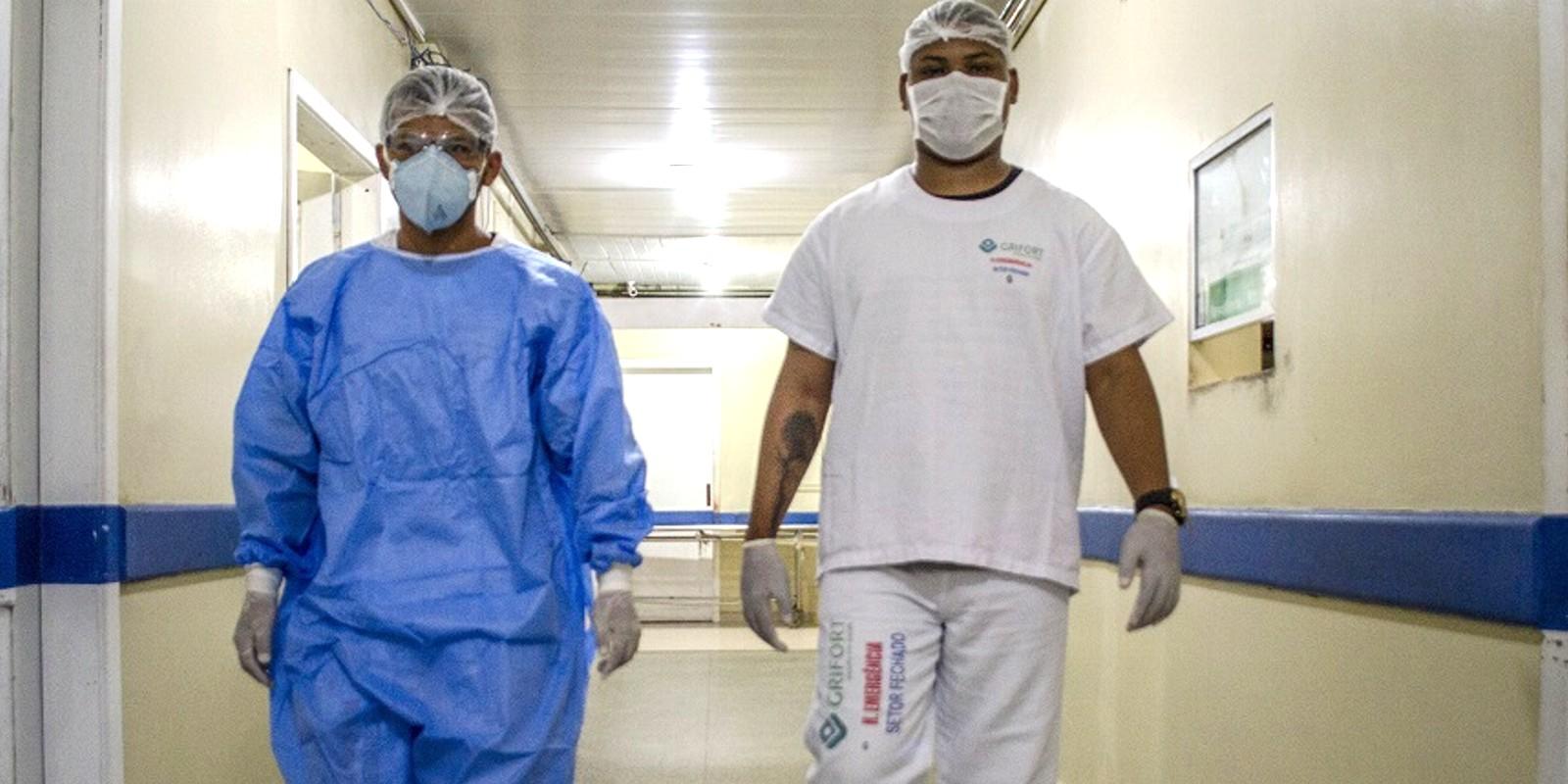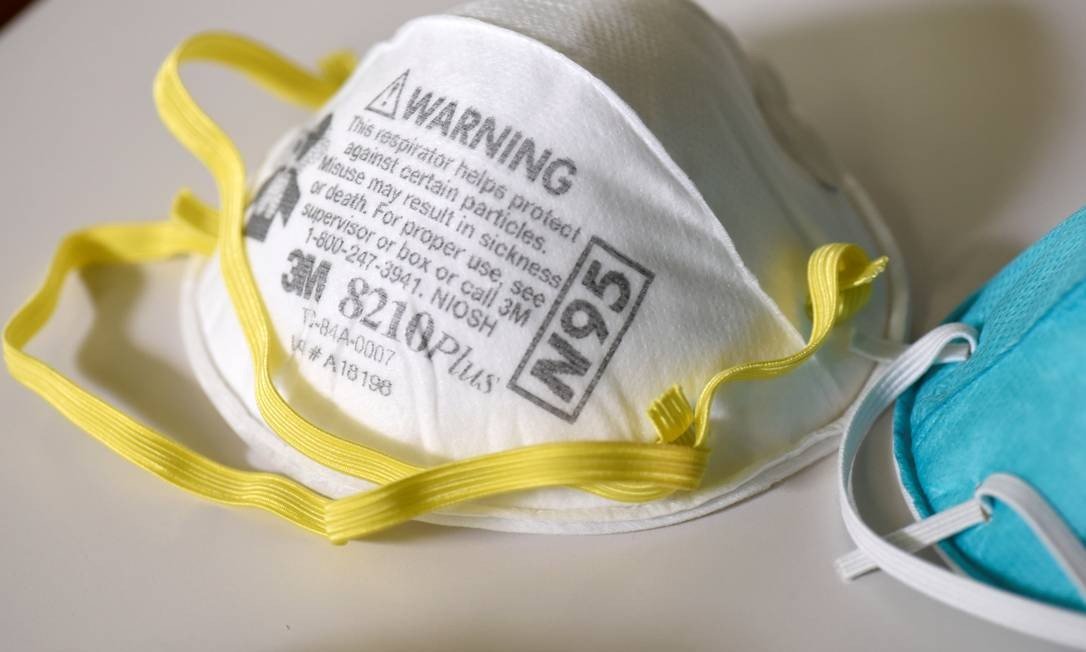RIO DE JANEIRO, BRAZIL – The deaths of a nursing auxiliary and a nurse, both suspected of having a Covid-19 infection, left their colleagues in the health area working in the São Paulo municipal network apprehensive, complaining about the lack of personal protective equipment (PPE), such as aprons and surgical masks, crucial in the fight against the coronavirus.

Eduardo Gomes da Silva, 48, a nursing auxiliary at Tide Setubal Hospital, and Idalgo Moura, 45, a nurse at Tatuapé Municipal Hospital, were working without the required material. Both died last Monday, March 31st, and their death certificates listed respiratory failure as the cause of death.
Brazil currently records 9,056 confirmed cases and 359 deaths due to coronavirus, and there is a known deficit of tests to detect the disease, in addition to the delay in obtaining the results of the tests performed.
“Without PPE, health professionals are doomed by the coronavirus,” says Valdomiro Marques, occupational safety expert at the Pirituba Hospital, who has been touring municipal hospitals in recent weeks in search of reports from colleagues about the lack of protection.
Although São Paulo is the state with the largest number of medical supplies, Minister Luiz Henrique Mandetta acknowledged on Thursday the difficulty in purchasing materials such as masks, due to the overheated international demand caused by the pandemic.
Eduardo Silva managed the Outpatient Medical Care and part of the service provided in the emergency room of Tide Setúbal Hospital. The week he felt sick, more specifically on March 20th, two of the three ICUs at the facility were occupied.
“People kept coming in”, says a nurse who prefers to remain anonymous. Eduardo attended at least one patient diagnosed with Covid-19. “Then he came home and soon had a fever. He went for tests and they ordered him to stay in isolation at home. On March 24th, he got worse, we went back to the hospital and he was soon intubated,” says Rosemere Alves Martins, Eduardo’s widow.
She describes the development of the disease as “frightening”. “I had never seen my husband have a headache. When he became short of breath, it worsened very quickly. On the day he was admitted, his heartbeat reached 70 beats per minute. I called a friend, also a nurse, and she said to me, ‘Rush to the hospital, or he’ll die in your house”.
Rosemere and her three children were able to say goodbye to Eduardo in a ten-minute burial, with a sealed casket, but no funeral. His family was not tested for the coronavirus. “I had a CT scan and they gave me some antibiotics, which I’m taking. Thank God we seem to be okay,” says the widow.
Rosemere says Eduardo did not drink, did not smoke and did not have any other illnesses. His co-workers were also surprised by his death. “He was a very energetic person. Actually, we are panicking because watching someone who was apparently healthy die overnight is terrifying,” says a nurse who worked with Eduardo and who prefers anonymity.
He said two days after his colleague was hospitalized, the workers – who refused to go on duty without a waterproof apron – were given three common masks, two pairs of gloves and a waterproof apron for a 12-hour shift. It is recommended that the masks be changed every two hours.
“We face a biosafety issue. Our aprons cannot be disposable, they have to be waterproof, we need to have caps, goggles, and they are not giving them to us. There are places that ask us to remain on duty with the same mask and the same apron for 12 hours”, complains a nurse from the Municipal Public Servant Hospital (HSPM).
At Dr. Benedito Municipal Hospital, the situation is repeated: “Here, we are wearing the same apron as those who collect the laundry. Half our backs are unprotected and we have to improvise. We put the apron on and take it off by the neck or we cut it off with scissors and patch the back with duct tape to avoid contamination when we take it off,” describes a local nurse.
Valdomiro Marques, a safety at work technician, explains that it would be ideal for workers in the administrative, cleaning and security sectors of hospitals, emergency rooms and UPAs to work with personal protection equipment.
“These workers, as well as the entire population, are in panic, are mentally exhausted, many talk about asking for resignations or resigning from their positions,” he says.

Outsourcing
Both Eduardo Silva and Idalgo Moura worked in the AMAs (Ambulatory Medical Assistance) connected to the hospitals, which work as an emergency room. Both worked at the SPDM ( São Paulo Association for the Development of Medicine), which provides services to the municipal health network.
In the São Paulo hospital staff, the consensus is that outsourced employees are the most vulnerable. “They are afraid of losing their jobs, so they subject themselves to work without PPE. On the other hand, government employees are more demanding,” says Eduardo’s fellow nurse.
His main complaint is about the lack of goggles and N95 masks, which have an air filter that blocks at least 95 percent of suspended particles and helps protect against airborne diseases, such as Covid-19.
In a note, the SPDM states that it has not yet been possible to confirm that workers have died as a result of Covid-19 and that they and their families have received “all the necessary assistance in the case”. Meanwhile, the city’s Mayor will not comment on specific cases.
Source: El País

